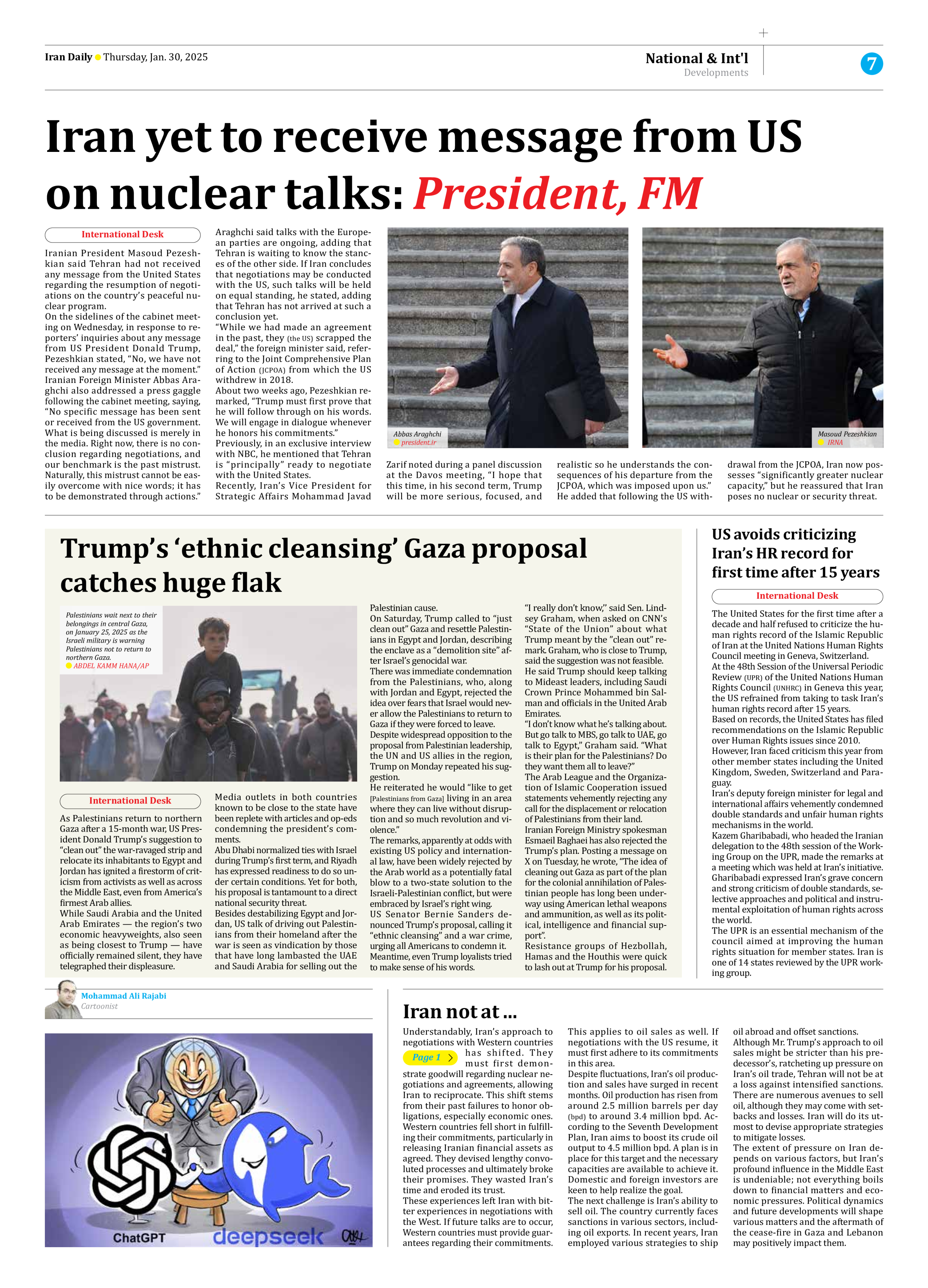
Iran not at ...
Page 1
Understandably, Iran’s approach to negotiations with Western countries has shifted. They must first demonstrate goodwill regarding nuclear negotiations and agreements, allowing Iran to reciprocate. This shift stems from their past failures to honor obligations, especially economic ones. Western countries fell short in fulfilling their commitments, particularly in releasing Iranian financial assets as agreed. They devised lengthy convoluted processes and ultimately broke their promises. They wasted Iran’s time and eroded its trust.
These experiences left Iran with bitter experiences in negotiations with the West. If future talks are to occur, Western countries must provide guarantees regarding their commitments. This applies to oil sales as well. If negotiations with the US resume, it must first adhere to its commitments in this area.
Despite fluctuations, Iran’s oil production and sales have surged in recent months. Oil production has risen from around 2.5 million barrels per day (bpd) to around 3.4 million bpd. According to the Seventh Development Plan, Iran aims to boost its crude oil output to 4.5 million bpd. A plan is in place for this target and the necessary capacities are available to achieve it. Domestic and foreign investors are keen to help realize the goal.
The next challenge is Iran’s ability to sell oil. The country currently faces sanctions in various sectors, including oil exports. In recent years, Iran employed various strategies to ship oil abroad and offset sanctions.
Although Mr. Trump’s approach to oil sales might be stricter than his predecessor’s, ratcheting up pressure on Iran’s oil trade, Tehran will not be at a loss against intensified sanctions. There are numerous avenues to sell oil, although they may come with setbacks and losses. Iran will do its utmost to devise appropriate strategies to mitigate losses.
The extent of pressure on Iran depends on various factors, but Iran’s profound influence in the Middle East is undeniable; not everything boils down to financial matters and economic pressures. Political dynamics and future developments will shape various matters and the aftermath of the cease-fire in Gaza and Lebanon may positively impact them.







